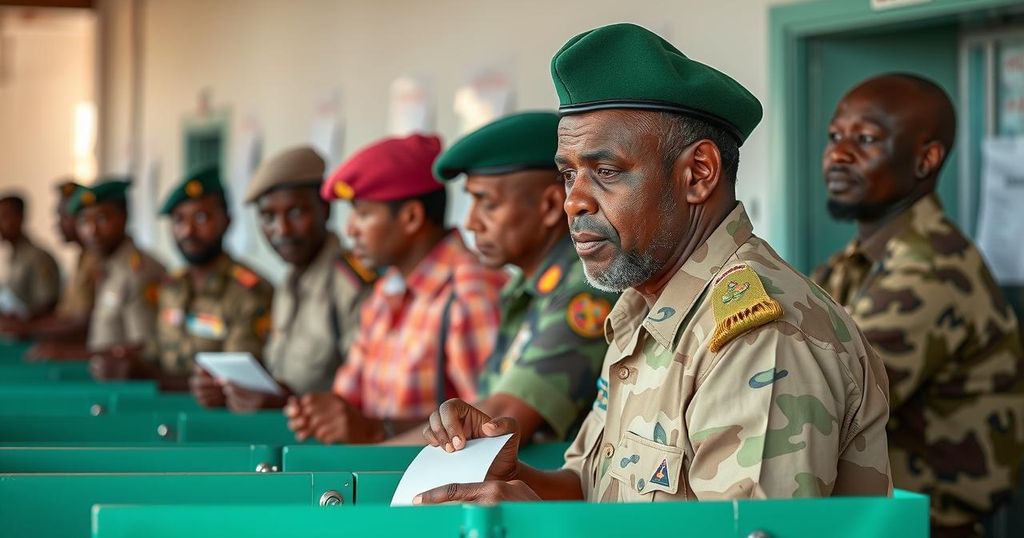Chad Votes in General Election as Opposition Calls for Boycott

Chad’s general election saw a low turnout of 38% amid an opposition boycott, indicating widespread dissatisfaction with the electoral process. President Mahamat Idriss Deby Itno urged citizens to vote, but many, including influential opposition figures, claimed the results were predetermined. Concerns over electoral fraud and ongoing violence pose challenges to Chad’s democratic transition.
Chad held a general election on Sunday, aimed at marking a pivotal step towards the conclusion of military governance after three years. Initial reports from the elections management agency indicated a voter turnout of merely 38%, attributed in part to a boycott orchestrated by opposition groups, who dismissed the election as predetermined. Despite appeals from President Mahamat Idriss Deby Itno, who took power in 2021, urging citizens to participate, opposition leader Succes Masra claimed that the majority had abstained, echoing widespread disenchantment with the electoral process.
Several citizens, including individuals like 39-year-old Patrice Lumumba Deoumoundou, expressed frustration, hoping for systemic change but questioning the authenticity of the elections, stating, “Nothing’s been done yet.” Concerns regarding potential electoral fraud have also surfaced, as cases were reported of missing ballots. The elections were overseen by international observers amidst ongoing violence from Boko Haram and complex socio-political dynamics in the country.
Chad’s political landscape has long been marred by military influence and underdevelopment. Following the death of President Idriss Deby in 2021, his son, Mahamat Idriss Deby Itno, assumed power in a transitional military council. The government has been working towards a democratic transition, yet significant challenges remain, including societal disillusionment with political processes and allegations of corruption and electoral fraud. Opposition parties have historically disputed election legitimacy, intensifying voter apathy and discontent.
The recent general election in Chad has highlighted the complexities of transitioning from military rule to democracy. With a reported low voter turnout and significant opposition boycott, it reflects the widespread disenchantment of the populace towards the electoral process and a call for genuine reform. As international observers monitor the process, the future of Chad’s political stability and democracy remains uncertain, potentially hindered by internal conflict and socio-economic challenges.
Original Source: www.communitynewspapergroup.com








